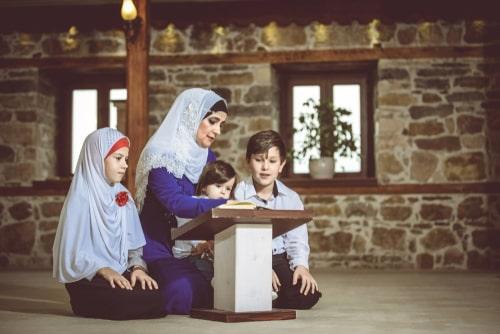Can I Continue to Raise My Children According to the Tenets of Islam After the Divorce?
 Divorce for Muslims in DuPage County can be extremely complicated, especially when there are questions about how Islamic law will apply to the divorce proceeding and the steps that must be taken to obtain an Islamic divorce certificate in addition to a civil divorce decree. One issue that is not especially common but can arise in a Muslim divorce is this: the spouses have minor children from the marriage, and one of the parents is less religious than the other and wants to move away from raising the children in a religious environment. In other words, one of the parents wants to move away from educating the children according to the beliefs and practices of Islam, but the other parent vehemently disagrees. If you are the other parent—the parent who believes in a strong religious upbringing for your children—you are likely concerned and want to know: Can I continue to raise my children according to the teachings of Islam after the divorce?
Divorce for Muslims in DuPage County can be extremely complicated, especially when there are questions about how Islamic law will apply to the divorce proceeding and the steps that must be taken to obtain an Islamic divorce certificate in addition to a civil divorce decree. One issue that is not especially common but can arise in a Muslim divorce is this: the spouses have minor children from the marriage, and one of the parents is less religious than the other and wants to move away from raising the children in a religious environment. In other words, one of the parents wants to move away from educating the children according to the beliefs and practices of Islam, but the other parent vehemently disagrees. If you are the other parent—the parent who believes in a strong religious upbringing for your children—you are likely concerned and want to know: Can I continue to raise my children according to the teachings of Islam after the divorce?
At Farooqi & Husain Law Office, we know how complicated questions about childrearing can be after a divorce, especially when those matters get at the fundamental religious beliefs of the parties. An experienced Oakbrook Terrace divorce lawyer can help.
Religious Upbringing Under Illinois Law
The Illinois Marriage and Dissolution of Marriage Act (IMDMA) governs the allocation of parental responsibilities, including a parent’s ability to make decisions about the child’s religious upbringing.
The IMDMA defines religious upbringing as “the choice of religion or denomination of a religion, religious schooling, religious training, or participation in religious customs or practices.” A child’s religious upbringing is considered part of the allocation of significant decision-making responsibilities. Accordingly, even if a parent is allocated parenting time, this fact alone does not mean the parent can make decisions about the child’s religious upbringing. Typically, the court will allocate the responsibility of the child’s religious upbringing to one or both parents depending upon the circumstances of the case.
How Courts Allocate Parental Responsibilities Concerning Religious Upbringing
How will the court allocate the parental responsibility of managing the child’s religious upbringing? According to the IMDMA, the court will consider “evidence of the parents’ past conduct as to the child’s religious upbringing . . . in the absence of an express or implied agreement between the parties.”
As such, even if you and your spouse no longer agree about your child’s religious upbringing, the court can look to an express or implied agreement that you did have, and to past conduct concerning the child’s religious upbringing. Accordingly, if you and your spouse raised your child within the Muslim community both religiously and culturally, the court may determine that you can continue to do so. However, you should always work with a divorce lawyer who has experience representing Muslims in DuPage County divorce proceedings.
Contact a DuPage County Divorce Attorney
If you have questions or concerns about the allocation of parental responsibilities in your divorce, especially as they pertain to your child’s religious upbringing, a compassionate and aggressive DuPage County divorce lawyer at our firm can represent you. Our family law attorneys have years of experience serving clients in Islamic divorce cases and handling many different family law matters for members of the DuPage County Muslim community. Contact Farooqi & Husain Law Office online to learn more about how we can assist you, or call our office at 630-909-9114.
Source:
http://www.ilga.gov/legislation/ilcs/ilcs4.asp?DocName=075000050HPt%2E+IV&ActID=2086&ChapterID=59&SeqStart=3800000&SeqEnd=5300000


 630-909-9114
630-909-9114




